The reversal of freedom: How a liberation story is hijacked for oppression
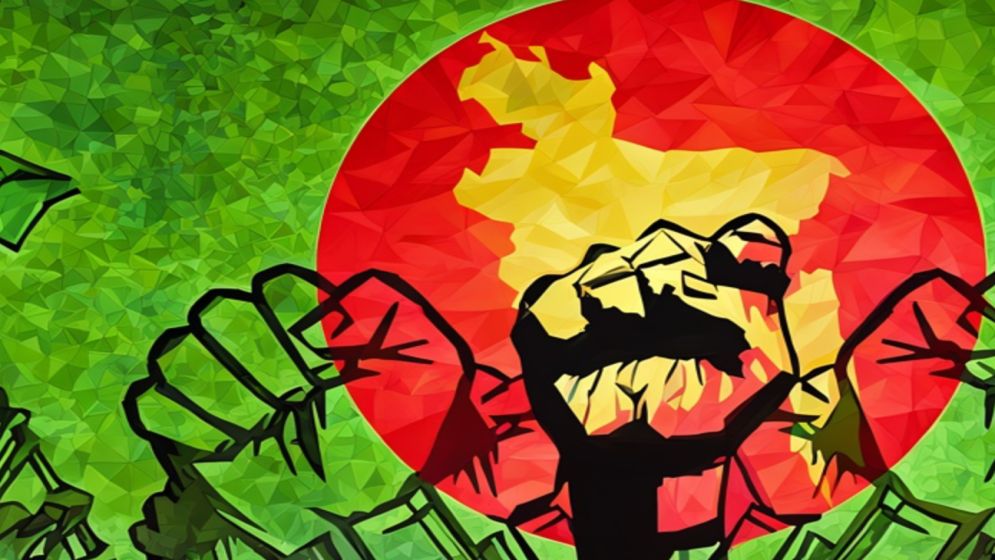
In the history of Bangladesh, the Liberation War of 1971 stands as one of the most pivotal moments, resulting in the birth of an independent nation after a brutal conflict with the Pakistani military.
In just over two decades, the people of East Bengal—later East Pakistan—were involved in the creation of two countries: Pakistan in 1947, and Bangladesh in 1971.
The desire for freedom, which initially propelled the creation of Pakistan, similarly fueled the movement for Bangladesh’s independence.
The hopes of 1947—when the region became part of Pakistan—proved illusory, as the promises of autonomy and self-determination were never fulfilled under its governance.
For a generation, the people of what was then East Pakistan endured political neglect and oppression. After years of democratic struggle, they took to the streets again, demanding the rights that had long been denied.
The Liberation War of 1971, marked by a fierce resistance to genocidal violence, culminated in the birth of Bangladesh as an independent state.
The struggle for independence was a broad-based movement, with people from all walks of life and political ideologies—except a few right-wing factions—united in their determination to sever ties with Pakistan.
At the forefront of the movement was the Bangladesh Awami League, led by Sheikh Mujibur Rahman, whose leadership became emblematic of the independence struggle.
Yet, while Mujib is widely regarded as the central figure, countless other leaders, both within and outside the Awami League, played essential roles in the fight for liberation.
However, the dominant narrative surrounding the Liberation War has often been shaped by a singular lens: that of the Awami League.
This version of history, which began to crystallize in the 1990s, tends to emphasize the party’s role, often overshadowing the contributions of other figures.
Under Sheikh Hasina, Mujib’s daughter and Bangladesh’s current prime minister, this narrative has become even more focused.
Mujib, once a towering figure of political struggle, has been elevated to a near-mythic status, his contributions framed as the cornerstone of every significant political movement in the country since the 1952 Language Movement.
In this retelling, Mujib is portrayed as the savior who “gave freedom to an unwanted populace,” a sentiment that diminishes the democratic aspirations of the Bengali people and the collective nature of their struggle.
This dominant version of history has become a powerful ideological tool for the Awami League’s autocratic regime.
Over the past fifteen years, a concerted effort to reshape the historical narrative has taken place, leveraging both legal mechanisms and selective archival disclosure to entrench the party’s version of events.
The manipulation of the judiciary and the carefully curated release of historical documents have allowed the state to rewrite the past, solidifying its own ideological grip on the present.
Through these efforts, a more centralized, simplified history of the Liberation War has been constructed—one that champions the Awami League while marginalizing the diverse voices that contributed to Bangladesh’s hard-won independence.
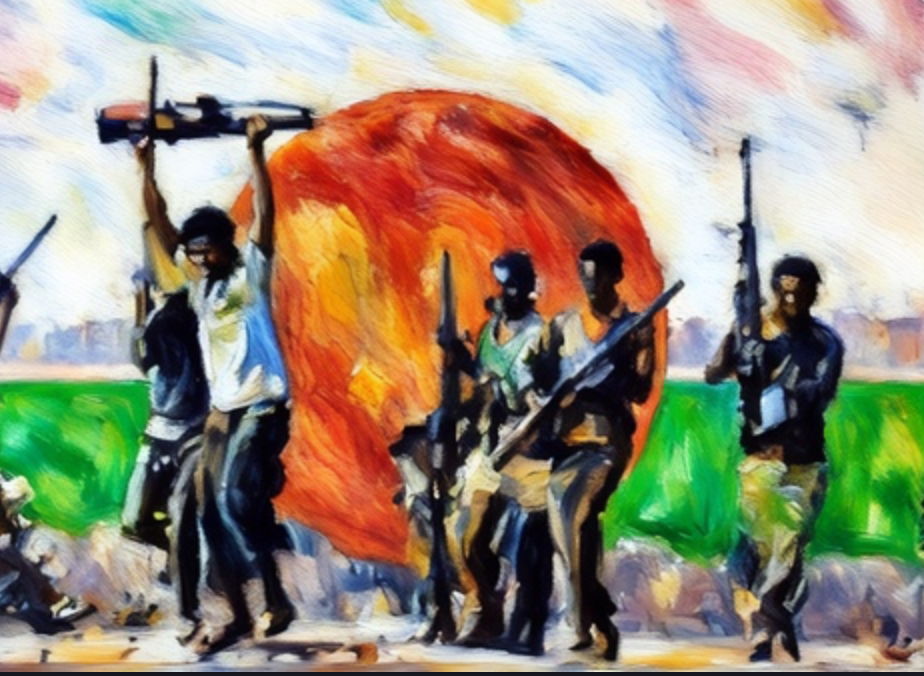
Exploiting
the legal system and judiciary
To illustrate this point, consider the case of Humayun Ahmed, one of Bangladesh’s most beloved writers, whose novel Deyal delves into the political landscape of the post-Liberation War era.
In his depiction of the assassination of Sheikh Mujibur Rahman, the High Court of Bangladesh took issue with how the novel portrayed the murder of Sheikh Mujib's youngest son, Sheikh Russel.
The then Attorney General argued that the scene failed to properly convey the brutality of Russel's killing. In response, the High Court ordered the suspension of Deyal's publication until the portrayal of Mujib’s assassination and its surrounding events was “corrected” to meet the court's expectations.
This intervention is highly problematic, as it extends beyond historical accuracy into the realm of fiction.
A novel, even one rooted in real events, remains a work of imagination—it is not a factual account of history. The creative freedom of a novelist, the ability to shape characters and events through their own lens, was significantly curtailed by this court ruling. At the heart of this issue is the question of how the figure of Sheikh Mujibur Rahman is to be represented, with the state seeking to dictate the terms of his portrayal in the name of historical truth.
A more explicit instance of the court’s role in shaping historical debate occurred in 2011, when British journalist David Bergman, known for his critical reporting on the International Crimes Tribunal (ICT), published a blog questioning the evidence behind the official death toll of the 1971 Liberation War.
While this remains a subject of academic debate, the court found Bergman guilty of contempt, arguing that his questioning of the official figure "hurt the feelings of the nation."
He was fined 5,000 taka (around £41) or faced a week in prison. In his ruling, Judge Obaidul Hassan stated, "Freedom of expression can be exercised in good faith and in the public interest. David Bergman, however, neither acted in good faith nor addressed a matter of public interest."
The court further ordered Bergman not to comment on "historically settled issues," deeming his views on the tribunal’s proceedings irresponsible and damaging to its integrity.
When 49 scholars, writers, and activists issued a statement expressing concern over the ICT’s verdict against Bergman, the tribunal responded by summoning them to explain their positions.
Most of these individuals were pressured into offering unqualified apologies to the tribunal, underscoring the ICT’s sensitivity to public dissent and its willingness to suppress criticism.
Even Zafrullah Chowdhury, a noted freedom fighter, found himself targeted by the tribunal for his remarks on the case. Zafrullah had criticized the contempt of court ruling against Bergman, calling it a symptom of "mental illness" in the judiciary.
He argued that justice cannot be achieved when judges are incapable of accepting criticism. In retaliation, the ICT initiated contempt proceedings against him.
Though Zafrullah offered a public apology, the chairman of the ICT-2 dismissed him as "a precarious and extremely wrong-headed person" whose actions posed a threat to the rule of law.
The tribunal’s swift and punitive response highlighted its intolerance for dissent, further cementing its role as a gatekeeper of the nation’s historical narrative.
In addition to the court's interventions in shaping historical narratives and fiction, the Digital Security Act has become another powerful tool for suppressing dissent, particularly when it comes to discussions about the Liberation War and Sheikh Mujibur Rahman.
Passed ostensibly to curb hate speech and harmful online content, the law criminalizes any digital communication that challenges the official narrative of the Liberation War or its key figures.
Specifically, it targets anyone who, through digital media, propagates or incites campaigns against the Liberation War, its principles, the Father of the Nation, the national anthem, or the national flag.
The law's vague phrasing—particularly the term "spirit of the Liberation War"—opens the door for any critical examination of the war or Sheikh Mujib to be deemed unlawful.
The Digital Security Act has quickly become one of the most notorious tools for curtailing free speech in Bangladesh in recent years. Cartoonists, writers, and activists have been arrested, imprisoned, and even tortured under its provisions, with one writer tragically dying in custody.
Both local and international human rights organizations have condemned the law for its authoritarian overreach and its chilling effect on freedom of expression.
In fact, the law’s passage followed extensive discussions within the Awami League, both inside and outside of Parliament, regarding the need for a legal framework to prevent the "distortion" of history.
This has contributed to a climate of censorship and heightened self-censorship, where any attempt to challenge the official narrative is stifled.
On one hand, this environment suppresses alternate perspectives and critical discourse; on the other, it encourages the proliferation of state-sanctioned content that aligns with the ruling party's preferred version of history.
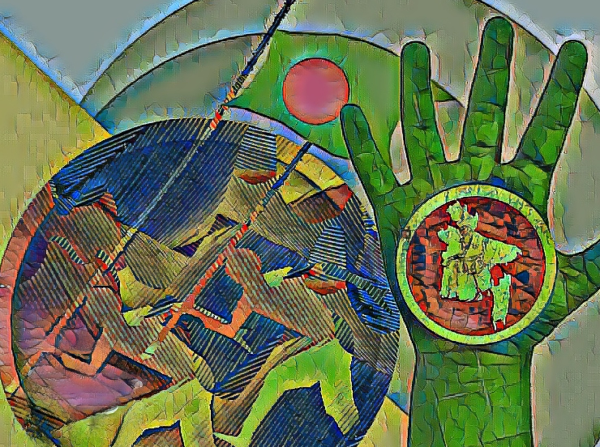
Selectively
disclosing archival documents
Archival documents are foundational to the writing of history, as they offer direct insight into past events and figures.
By controlling access to these documents, however, it is possible to control the narrative itself. Over the past decade, the Awami League has effectively shaped the historical account of the Liberation War and Sheikh Mujibur Rahman through a two-pronged approach.
First, the party selectively released certain classified documents related to Sheikh Mujib while deliberately withholding materials on other significant leaders.
A case in point is the publication of the Secret Documents of the Intelligence Branch on Father of the Nation Bangabandhu Sheikh Mujibur Rahman.
The release of these intelligence files, covering the years from 1948 to 1971 and edited by Sheikh Hasina, is a notable event that deserves further scrutiny.
These documents were published in fourteen volumes, but one aspect of this project stands out. In the introduction, Sheikh Hasina attempts to create the impression that no other political leader in Bangladesh received as much attention from the intelligence agencies as her father.
She writes, “It is noteworthy that there existed and still exists many knowledgeable and qualified political leaders receiving much coverage in the news media. Apparently, their importance in the country’s political scenario seems quite valuable. However, there appears hardly any activity of the Intelligence Branch against them, as there are only a few reports on them.”
Hasina further explains that, after assuming office in 1996, she personally collected these documents and made three copies: one for her son, who passed it to historian Enayetur Rahim.
She also claims that these documents, being classified intelligence reports, were declassified. However, the process by which these documents were declassified is never fully explained, and there is no official record or public notice confirming their release.
Through this initiative, Sheikh Hasina has cultivated the narrative that Sheikh Mujib was the only leader under constant surveillance by the intelligence agencies.
The claim that there are 14 volumes of intelligence reports solely about Mujib, with no similar files on other political figures, is highly questionable.
Take, for instance, the government’s close monitoring of political party activities, which is evident in numerous classified reports.
In the political sections of highly sensitive weekly government reports from 1970, the activities of various political parties—including the Awami League, Communist Party, Muslim League, and Jamaat-e-Islami—were closely documented.
A review of these reports, spanning from January to December 1970, shows that nearly 45% of the coverage focused on leftist political groups.
This suggests that, far from exclusively surveilling Mujib, intelligence agencies were deeply concerned with the activities of a broad spectrum of political organizations.
It is therefore unreasonable to suggest that intelligence files would have focused solely on Mujib while disregarding other political leaders.
The selective release of archival documents has played a crucial role in shaping the narrative of Sheikh Mujibur Rahman as the singular architect of Bangladesh's independence.
By highlighting his actions and strategies, the narrative frames him as the sole leader who “designed political plans with specific action strategies to affirm the rights of the Bengali people” and build the nation as an independent state.
This version of history, however, completely overlooks the contributions of other leaders—both within the Awami League and beyond—effectively erasing their roles in the liberation struggle.
In the broader effort to elevate Sheikh Mujib to a near-mythic status, certain aspects of his leadership have been selectively presented, while others have been deliberately withheld.
For example, a report from The Daily Star after Sheikh Hasina's fall noted that, for nearly twelve years, the Dhaka University Central Library had an unofficial ban on accessing newspapers from 1972 to 1975, the years when Sheikh Mujib was in power.
Though these newspapers have since been made available, some students suspect that they were intentionally kept out of circulation.
This selective disclosure of information has helped to construct an image of Sheikh Mujib as an almost divine figure, while obscuring the more complicated and often criticized aspects of his governance during that period.
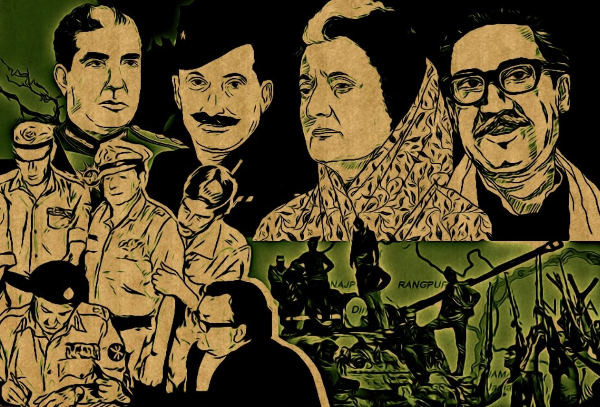
Construction
and distortion
Through two primary methods—manipulating the legal system and judiciary, and selectively releasing archival documents—the state has not only constructed but also distorted historical truth, reinforcing its own narrative of the Liberation War.
This process of elevating Sheikh Mujibur Rahman to a near-divine status has been accompanied by a systematic campaign to belittle and vilify other leaders.
Take, for example, the renaming of the Maulana Bhasani Novo Theatre in honor of Sheikh Mujib, while Ziaur Rahman, a key figure in the Liberation War, became the target of persistent slander from Awami League leaders.
In 2014, Hasan Mahmud, then the Awami League’s Publicity and Publication Secretary, claimed at a Dhaka Reporters’ Unity discussion that Ziaur Rahman had acted as a "Pakistani spy" during the war.
Such statements were part of a broader propaganda effort to discredit Zia, despite his significant contributions to the Liberation War as one of the Sector Commanders, Brigade Commander of the Z-Force, and a recipient of the Bir Uttam gallantry award in 1972. The Awami League’s portrayal of Zia as a “villain” actively undermines his role in shaping Bangladesh’s history.
The repression of dissenting views has been so pronounced that the Awami League has increasingly distanced itself from its own historical legacy.
Over time, the party’s narrative has shifted from a collective history to one dominated by the Sheikh family. National history has been reshaped into a story centered on the family’s triumphs and tragedies, with even the birth and death anniversaries of its members elevated to national observances.
A striking example of this trend is the removal of Dhaka University Professor Imtiaz Ahmed from his position as Director of the Centre for Genocide Studies.
Though a staunch supporter of the Liberation War and the Awami League, Imtiaz Ahmed's academic work deviated from the party's rigidly enforced narrative. In his book Historicizing 1971 Genocide: State Versus Person, Ahmed critically examined Sheikh Mujibur Rahman’s March 7 speech and the genocide of 1971.
While he acknowledged the Pakistani army’s atrocities, he argued that the violence was a response to the suppression of democratic movements rather than a racially or ethnically motivated genocide.
This nuanced interpretation was in direct conflict with the increasingly dogmatic narrative promoted by the Awami League, leading to his dismissal. This illustrates how any deviation from the party’s official version of the Liberation War can lead to political retribution.
Imtiaz Ahmed was not alone in facing such consequences. Sharmin Ahmad, the daughter of Tajuddin Ahmad—who led the Bangladesh Liberation War in 1971—also became a target of the Awami League after publishing her book Neta o Pita (Leader and Father), which explored her father’s historical role.
Despite the book’s focus on Tajuddin’s contributions, it was perceived as incompatible with the party's central narrative. In retaliation, the Awami League launched a smear campaign, falsely linking her husband to the Muslim Brotherhood and accusing the book of being part of an international conspiracy.
The distortion of history reached its zenith with the alteration of Sheikh Mujib's own speeches. Upon examining a compilation of his speeches, edited by AK Abdul Momen and prefaced by Sheikh Hasina, it became clear that the original content had been heavily distorted.
This deliberate manipulation further entrenches the state’s version of events while erasing complexities and contradictions that do not align with the official narrative.
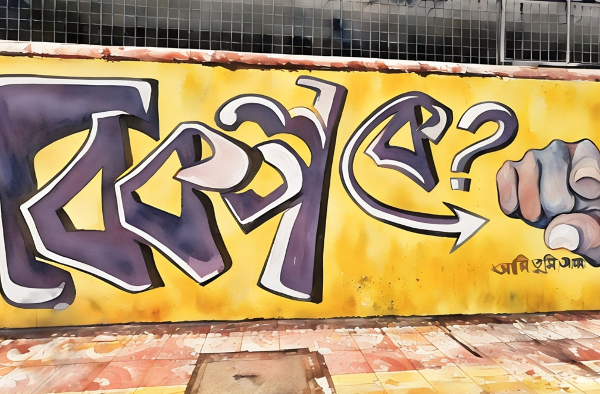
History
and ideology: Instruments of autocratic control
History is a powerful tool for any regime seeking to promote nationalism, and as Hobsbawm astutely observed, “history is the raw material for nationalist or ethnic or fundamentalist ideologies, as poppies are the raw material for heroin addiction.
The past is an essential element, perhaps the essential element, in these ideologies.” Scholars agree that authoritarian regimes often use nationalism as a core ideological framework to legitimize their rule.
In their analysis of democratic backsliding, Ali Riaz and Md Sohel Rana argue that legalistic autocrats combine institutional manipulation with the dissemination of carefully crafted ideological narratives to consolidate their power.
They note, “Like many other countries where democratic backsliding has taken place in the past decade, the incumbent in Bangladesh has used ‘patriotism’ as a weapon to create division and as a legitimizing tool since coming to power in 2009.”
The Awami League has adeptly harnessed the history of the Liberation War to build and perpetuate a narrow, state-sanctioned narrative centered around the war’s ideals.
This article argues that the construction of this ideological framework has been built on the continual manipulation and distortion of historical facts, facilitated by legal mechanisms and tight control over archival materials.
Alternative perspectives have been systematically labeled as unpatriotic and disparaged by the government, fostering an environment of self-censorship. Restricted access to critical historical documents further limits public scrutiny, while state-controlled media and institutions amplify the official narrative, reinforcing the regime’s ideological dominance.
The public discontent expressed toward the symbols of the Liberation War and Sheikh Mujib after August 5 reflects a deep frustration with this oppressive narrative.
It is a tragic irony that a history rooted in liberation has been repurposed as a tool of repression by an autocratic regime.
—-
Sohul Ahmed is a Researcher and Writer interested in Genocide, Violence, History, Politics and Decolonization studies.

